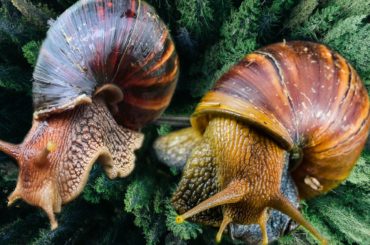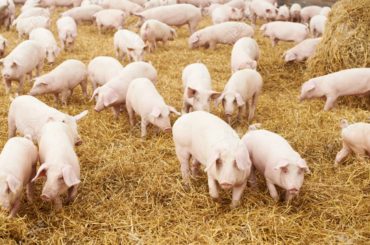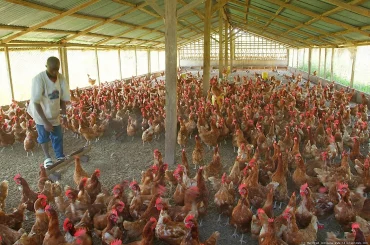Rabbits can enjoy a variety of fruits as part of their diet, but it’s important to remember that fruits should only be given in moderation. Too much fruit can lead to digestive upset and obesity in rabbits due to the high sugar content. In this article, 8 options to share with your rabbit as we discuss Fruits Can Rabbits Eat.
What Are the Fruits Can Rabbits Eat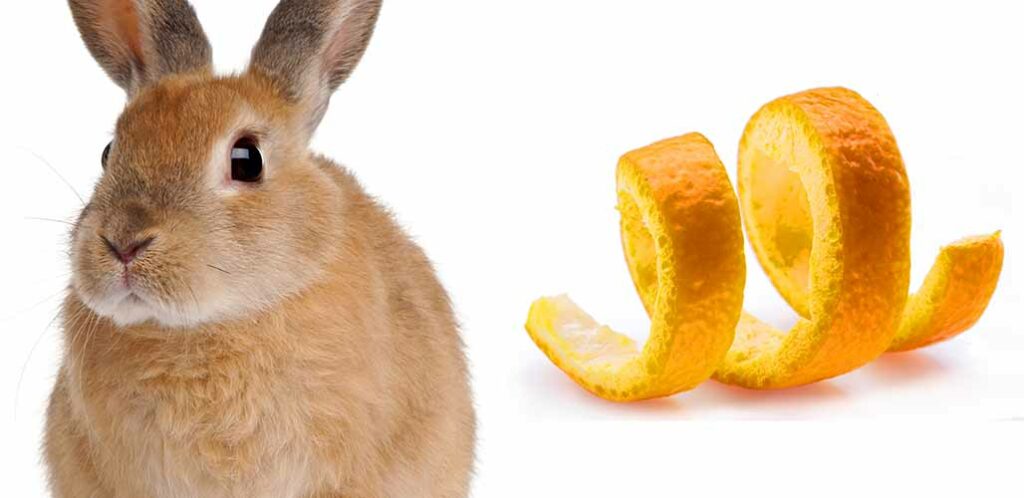
- Apples: Remove the seeds and core, and feed small slices of apple to your rabbit.
- Bananas: Offer small pieces of banana as an occasional treat. It’s high in sugar, so limit the quantity.
- Berries: Rabbits can eat strawberries, blueberries, raspberries, and blackberries. These should be given in small amounts as treats.
- Grapes: Remove the seeds and cut grapes into small pieces before offering them to your rabbit.
- Kiwi: You can offer a small slice of kiwi as an occasional treat for your rabbit.
- Melons: Rabbits can have watermelon, cantaloupe, and honeydew melon in small amounts. Remove the seeds and rind before offering.
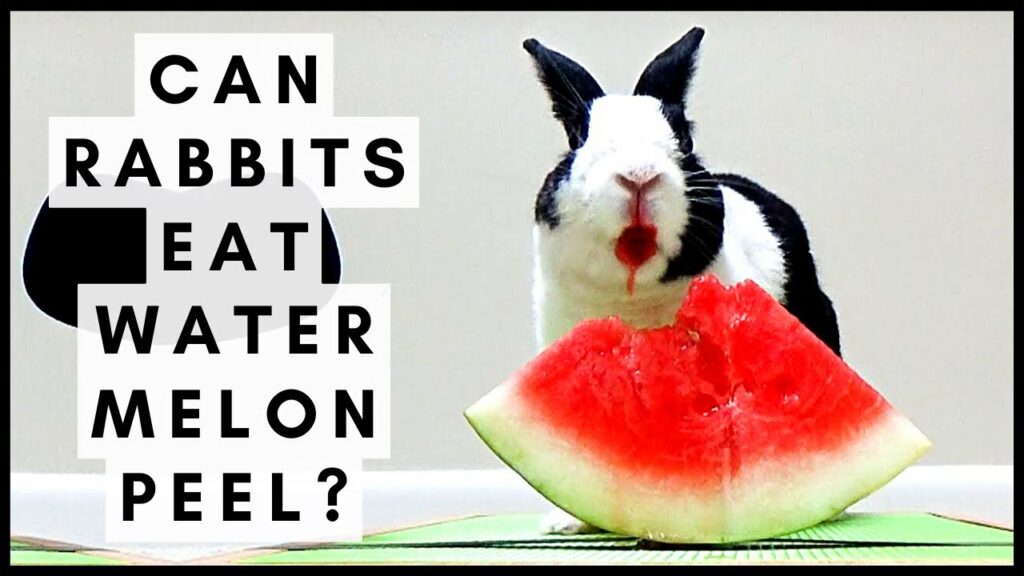
- Oranges: Give small segments of peeled oranges as a treat. However, citrus fruits should be given sparingly due to their high acidity.
- Pineapple: Offer a small piece of fresh pineapple as an occasional treat for your rabbit.
What vegetables can rabbits eat?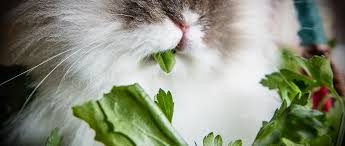
Rabbits have a plant-based diet and can consume a variety of vegetables. However, it’s important to introduce new foods gradually to avoid digestive upset. Here are some vegetables that are generally safe for rabbits to eat:
- Leafy Greens: Romaine lettuce, green leaf lettuce, spinach, kale, cilantro, parsley, and dandelion greens are good options. However, avoid feeding too much spinach or kale as they are high in oxalic acid.
- Cruciferous Vegetables: Broccoli florets (in moderation), cauliflower, and Brussels sprouts can be given occasionally.
- Herbs: Basil, mint, oregano, and thyme are safe and can provide variety in their diet.
- Carrots: Carrots are a favorite among rabbits. However, they are high in sugar, so offer them in small amounts as an occasional treat.
- Bell Peppers: Green, red, and yellow bell peppers are safe for rabbits and provide a good source of vitamin C.
- Cucumber: Cucumber slices can be a hydrating snack for rabbits, but remove the seeds as they can cause digestive issues.
General tips for feeding your rabbit
Feeding rabbits properly is essential for their health and well-being. Here are some general tips to keep in mind when it comes to feeding your rabbit:
- High-quality hay: The majority of a rabbit’s diet should consist of good quality hay, such as timothy hay or orchard grass. Hay provides essential fiber for digestion and helps maintain healthy teeth. Make sure the hay is fresh, free of mold, and always available for your rabbit to munch on.
- Fresh vegetables: Offer a variety of fresh, leafy vegetables to your rabbit daily. Examples include romaine lettuce, kale, spinach, cilantro, and parsley. Introduce new vegetables gradually to avoid digestive upset, and remove any uneaten portions to prevent spoilage.
- Limited pellets: Pellets formulated specifically for rabbits can be a part of their diet, but they should be given in moderation. Pellets should make up no more than 5% of their total diet. Look for high-quality pellets with minimal fillers or additives, and adjust the portion size based on your rabbit’s age, weight, and activity level.
- Freshwater: Provide your rabbit with fresh, clean water at all times. Use a water bottle or a heavy ceramic bowl to prevent tipping. Check the water supply daily and ensure it’s free from contaminants.
- Treats in moderation: Treats should be given sparingly and should not exceed 5% of the rabbit’s total diet. Opt for rabbit-safe treats like small pieces of fruits (e.g., apple, banana) or vegetables (e.g., carrot, bell pepper). Avoid sugary or fatty treats as they can lead to obesity and digestive issues.
- Avoid toxic foods: Some foods are toxic to rabbits and should be strictly avoided. These include chocolate, avocado, onions, garlic, rhubarb, and foods high in starch or sugar.
- Monitor portion sizes: Be mindful of the portion sizes you provide to your rabbit, as overfeeding can lead to obesity and other health problems. Adjust the amount of food based on your rabbit’s age, weight, and activity level. Consult with a veterinarian for specific feeding recommendations.
- Gradual diet changes: When introducing new foods or making changes to your rabbit’s diet, do so gradually. Sudden dietary changes can upset their delicate digestive system. Introduce new foods one at a time and monitor how your rabbit responds to them.
- Regular check-ups: Schedule regular veterinary check-ups for your rabbit to monitor their overall health and ensure their diet is appropriate. Your vet can provide specific dietary recommendations based on your rabbit’s individual needs.
Water requirements for rabbits
Rabbits, like any living creatures, require an adequate supply of water to maintain their health and well-being. Water is essential for various physiological functions, including digestion, temperature regulation, and overall hydration. Here are some considerations regarding water requirements for rabbits:
- Access to Fresh Water: Rabbits should have constant access to fresh, clean water. Ensure that their water source is replenished regularly to prevent dehydration. Water should be provided in a clean, spill-proof container that is securely attached to prevent tipping.
- Quantity: On average, a healthy adult rabbit requires approximately 50-150 milliliters of water per kilogram of body weight per day. However, factors such as environmental temperature, diet, activity level, and individual needs can influence the exact amount of water required.
- Bottle vs. Bowl: Both water bottles and water bowls can be used to provide water to rabbits. However, bottles are often preferred as they keep the water cleaner and prevent accidental spillage or contamination. It’s essential to check the bottle nozzle regularly to ensure it is working correctly and not clogged.
- Supplementary Water Sources: Rabbits primarily obtain water through drinking, but they can also consume water from fresh vegetables and leafy greens. These food items have a high moisture content and can contribute to overall hydration. However, they should not replace the need for a fresh water source.
- Monitoring Water Intake: Observing your rabbit’s water intake is crucial. Significant changes in water consumption may indicate underlying health issues, such as dental problems, gastrointestinal disorders, or kidney disease. If you notice any abnormal changes, consult a veterinarian for further evaluation.
READ ALSO: Can Dog Eat Cucumber? 7 Comprehensive Benefits of Cucumbers for Dogs
Remember to introduce new fruits gradually and in small quantities to avoid any digestive issues. which we have discussed in this content about Fruits Can Rabbits Eat. Always wash the fruits thoroughly and remove any seeds or pits that could be harmful to your rabbit. It’s important to provide a balanced diet for your rabbit, primarily consisting of fresh hay, fresh vegetables, and a limited amount of pellets specifically formulated for rabbits.

